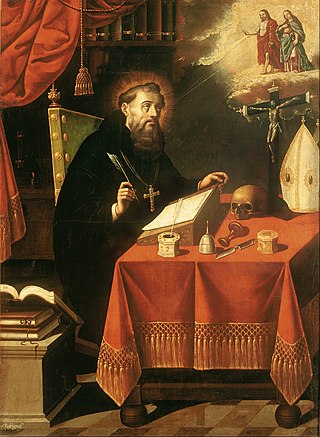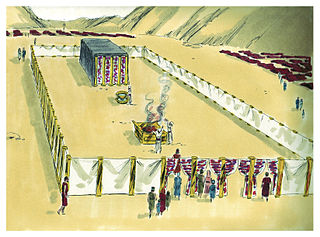Christian eschatology, is a minor branch of study within Christian theology which deals with the doctrine of the "last things", especially the Second Coming of Christ, or Parousia. Eschatology – the word derives from two Greek roots meaning "last" (ἔσχατος) and "study" (-λογία) – involves the study of "end things", whether of the end of an individual life, of the end of the age, of the end of the world, or of the nature of the Kingdom of God. Broadly speaking, Christian eschatology focuses on the ultimate destiny of individual souls and of the entire created order, based primarily upon biblical texts within the Old and New Testaments.

The Rapture is an eschatological position held by some Christians, particularly those of American evangelicalism, consisting of an end-time event when all dead Christian believers will be resurrected and, joined with Christians who are still alive, together will rise "in the clouds, to meet the Lord in the air." The origin of the term extends from the First Epistle to the Thessalonians in the Bible, which uses the Greek word harpazo, meaning "to snatch away" or "to seize". This view of eschatology is referred to as dispensational premillennialism, a form of futurism that considers various prophecies in the Bible as remaining unfulfilled and occurring in the future.
Dispensationalism is a theological framework of interpreting the Bible which maintains that history is divided into multiple ages or "dispensations" in which God acts with his chosen people in different ways. It is often distinguished from covenant theology. The term "dispensationalism" is attributed to Philip Mauro, a critic of the system's teachings in his 1928 book The Gospel of the Kingdom.
In Christian eschatology, postmillennialism, or postmillenarianism, is an interpretation of chapter 20 of the Book of Revelation which sees Christ's second coming as occurring after the "Millennium", a Golden Age in which Christian ethics prosper. The term subsumes several similar views of the end times, and it stands in contrast to premillennialism and, to a lesser extent, amillennialism.
Premillennialism, in Christian eschatology, is the belief that Jesus will physically return to the Earth before the Millennium, heralding a literal thousand-year golden age of peace. Premillennialism is based upon a literal interpretation of Revelation 20:1–6 in the New Testament, which describes Jesus's reign in a period of a thousand years.

William Carey was an English Christian missionary, Particular Baptist minister, translator, social reformer and cultural anthropologist who founded the Serampore College and the Serampore University, the first degree-awarding university in India.

Amillennialism or amillenarism is a chillegoristic eschatological position in Christianity which holds that there will be no millennial reign of the righteous on Earth. This view contrasts with both postmillennial and, especially, with premillennial interpretations of Revelation 20 and various other prophetic and eschatological passages of the Bible.

Leviticus 18 deals with a number of sexual activities considered abominable, including incest and bestiality. The chapter also condemns Moloch worship. It is part of the Holiness Code, and its sexual prohibitions are largely paralleled by Leviticus 20, except that chapter 20 has more emphasis on punishment.

James Hall Brookes was an American Presbyterian pastor, Christian leader and author. Brookes led congregations in Ohio and Missouri during a career spanning 43 years. He became a leader among his peers in the Niagara Bible Conference which led to editing The Truth: or, Testimony for Christ, a periodical. His legacy is also found in the many books, booklets and tracts he produced.

Futurism is a Christian eschatological view that interprets portions of the Book of Revelation, the Book of Ezekiel, and the Book of Daniel as future events in a literal, physical, apocalyptic, and global context.

James Martin Gray was a pastor in the Reformed Episcopal Church, a Bible scholar, editor, hymn writer, and the president of Moody Bible Institute, 1904-34.
John Dwight Pentecost was an American Christian theologian, best known for his book Things to Come.
Historic premillennialism is one of the two premillennial systems of Christian eschatology, with the other being dispensational premillennialism. It differs from dispensational premillennialism in that it only has one view of the rapture, and does not require a literal seven-year tribulation. Historic premillennialists hold to a post-tribulational rapture, meaning the church is raised to meet Christ in the air after the trials experienced during the Great Tribulation. Historic premillennialism does not require that apocalyptic prophecies be interpreted literally. The doctrine is called "historic" because many early church fathers appear to have held it, including Irenaeus, Justin Martyr, and Papias. Post-tribulational premillennialism is the Christian eschatological view that the second coming of Jesus Christ will occur prior to a thousand-year reign of the saints but subsequent to the Great Apostasy.
Robert Laird Harris was a Presbyterian minister, church leader, and Old Testament scholar.

George Bush was an American biblical scholar, pastor, abolitionist, and academic. A member of the Bush family, he is a distant relative of both President George H. W. Bush and President George W. Bush.

The modern Hindi and Urdu standards are highly mutually intelligible in colloquial form, but use different scripts when written, and have lesser mutually intelligibility in literary forms. The history of Bible translations into Hindi and Urdu is closely linked, with the early translators of the Hindustani language simply producing the same version with different scripts: Devanagari and Nastaliq, as well as Roman.

William Cuninghame of Lainshaw (c.1775–1849) was a Scottish landowner, known as a writer on biblical prophecy. He dated the beginning of the reign of Antichrist to 533 A.D., to coincide with a claimed date at which Justinian I gave universal rule to the Papacy, by subtracting 1260 years from the date after the French Revolution at which it was seen to turn against the Roman Catholic Church.
Prophetic conferences were a manifestation for English-speaking Protestants of the 19th century of the interest in Biblical prophecy and its interpretation. Such conferences have been thought a likely source of some of the analytical terms now deployed in discussing interpretations, such as premillennialism/premillennarian, postmillennialism/postmillennarian and amillennialism, some time ahead of their appearance in the 1840s in print.
Selig Newman was a Polish-born Hebraist and educator.










